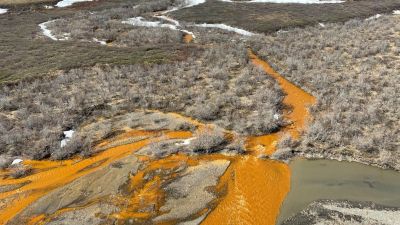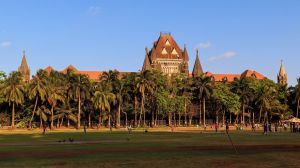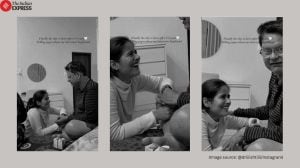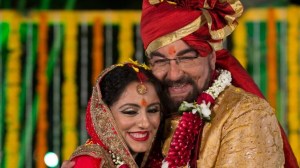UPSC Essentials | Daily subject-wise quiz : Polity and Governance (Week 17)
Are you preparing for UPSC CSE Prelims 2024? Check your progress and revise your topics through this quiz on Polity and Governance.
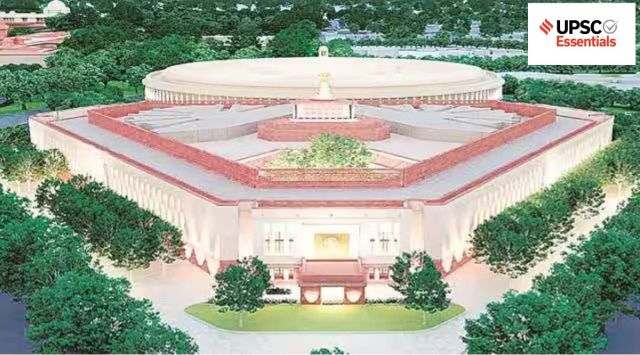 Brush up your knowledge of Polity and Governance by solving the MCQs. Here is the image of the newly-inaugurated Parliament building (PTI File Photo)
Brush up your knowledge of Polity and Governance by solving the MCQs. Here is the image of the newly-inaugurated Parliament building (PTI File Photo) 🚨 This story is part of our special initiative for UPSC and other competitive exams. Look out for UPSC KEY on weekdays and UPSC Essentials everyday, Weekly news express with MCQs, Key Terms of the past week, Quizzes as well as The Indian Express 360° Upsc Debate, Society & Social Justice, UPSC Mains Practice, Art and Culture with Devdutt Pattanaik, UPSC Ethics Simplified, Experts Talk, and more. 🚨
UPSC Essentials brings to you its initiative of subject-wise quizzes. UPSC Daily Subject Quiz covers all topics under the UPSC Civil Services syllabus, including Polity, History, Geography, Economics, Environment, Science and Technology, International Relations, and more. These quizzes are designed to help you revise some of the most important topics from the static part of the syllabus. Each day, we cover one new subject. Attempt today’s subject quiz on Polity and Governance to check your progress. Come back tomorrow to solve the History, Culture, and Social Issues MCQs. Don’t miss checking the answers and explanations at the end of the quiz.
Dear Aspirants,
Thank you for joining us for LIVE sessions. You will be happy to know that we will be LIVE every week on Wednesdays, take up your queries, provide you with cues from the news, and discuss relevant themes revolving around news and UPSC preparation in general.
We will take up more questions too. You can send your queries at manas.srivastava@indianexpress.comor join Telegram: The Indian Express UPSC Hub or ask me Live! at 8 PM on August 2.
QUESTION 1
With reference to the ninth schedule of the Constitution of India, consider the following statements:
1. It became a part of the Constitution in 1949.
2. It was created to protect laws related to agrarian reform and for abolishing the Zamindari system.
Which of the statement(s) given above is/are correct?
(a) 1 only
(b) 2 only
(c) Both 1 and 2
(d) Neither 1 nor 2
QUESTION 2
Which of the following articles of the Constitution of India deals with freedom of speech and expression?
(a) Article 19(a)
(b) Article 21(a)
(c) Article 19(c)
(d) Article 21
QUESTION 3
With reference to “Zero Hour”, consider the following statements:
1. This phrase finds its mention in the rules of procedure.
2. It was an innovation of the British Parliamentary system.
Which of the statement(s) given above is/are correct?
(a) 1 only
(b) 2 only
(c) Both 1 and 2
(d) Neither 1 nor 2
QUESTION 4
Who is the guardian of the powers and privileges of the members of the Lok Sabha?
(a) Prime Minister
(b) President
(c) Speaker of the Lok Sabha
(d) Deputy speaker of Lok Sabha
QUESTION 5
Consider the following:
1. Speaker of the House of the People
2. Chairman of Council of States
3. Judges of the Supreme Court
4. Attorney General of India
How many of the above get allowances and emoluments as per the second schedule?
(a) Only one
(b) Only two
(c) Only three
(d) All four
ANSWERS TO MCQs
1. (b)
FYI:
— The Ninth Schedule contains a list of central and state laws which cannot be challenged in court. Currently, 284 such laws are shielded from judicial review. Most of the laws protected under the Schedule concern agriculture/land issues.
— The Schedule became a part of the Constitution in 1951 when the document was amended for the first time. Hence, statement 1 is not correct.
It was created by the new Article 31B, which along with 31A was brought in by the government to protect laws related to agrarian reform and for abolishing the Zamindari system. Hence, statement 2 is correct.
— The First Amendment added 13 laws to the Schedule. Subsequent amendments in 1955, 1964, 1971, 1974, 1975, 1976, 1984, 1990, 1994, and 1999 have taken the number of protected laws to 284.
— While the Ninth Schedule provides the law with a “safe harbour” from judicial review, the protection is not blanket.
— When the Tamil Nadu law was challenged in 2007 (I R Coelho v State of Tamil Nadu), the Supreme Court ruled in a unanimous nine-judge verdict that while laws placed under Ninth Schedule cannot be challenged on the grounds of violation of fundamental rights, they can be challenged on the ground of violating the basic structure of the Constitution.
— The court clarified that the laws cannot escape the “basic structure” test if inserted into the Ninth Schedule after 1973, as it was in 1973 that the basic structure test was evolved in the Kesavananda Bharati case as the ultimate test to examine the constitutional validity of laws.
Therefore, option (b) is the correct answer.
2. (a)
FYI:
— Article 19 of the Constitution of India deals with the Protection of certain rights regarding freedom of speech, etc. All citizens shall have the right—
(a) to freedom of speech and expression;
(b) to assemble peaceably and without arms;
(c) to form associations or unions or co-operative societies;
(d) to move freely throughout the territory of India;
(e) to reside and settle in any part of the territory of India;
(g) to practise any profession, or to carry on any occupation, trade or business.
Therefore, option (a) is the correct answer
(Source: Constitution of India)
3. (d)
FYI:
— During the initial days, Parliament used to break for lunch at 1 pm. Therefore, the opportunity for MPs to raise national issues without advance notice became available at 12 pm and could last for an hour until the House adjourned for lunch.
— This led to the hour being popularly referred to as Zero Hour and the issues being raised during this time as Zero Hour submissions.
— Zero Hour is an Indian parliamentary innovation. Hence, statement 2 is not correct.
— The phrase does not find mention in the rules of procedure. The concept of Zero Hour started organically in the first decade of the Indian Parliament when MPs felt the need for raising important constituency and national issues. Hence, statement 1 is not correct.
— Over the years, presiding officers of both Houses have given directions to streamline the working of Zero Hour to make it even more effective.
— Its importance can be gauged from the support it receives from citizens, media, MPs and presiding officers despite not being part of the rulebook.
Therefore, option (d) is the correct answer.
4. (c)
FYI:
— The Speaker is the guardian of the rights and privileges of the House, its Committees and its members. It depends solely on the Speaker to refer any question of privilege to the Committee of Privileges for examination, investigation and report.
— Article 93 of the Constitution of India provides for Lok Sabha and Article 178 for state Assemblies states that these Houses “shall, as soon as may be”, choose two of its members to be Speaker and Deputy Speaker.
Therefore, option (c) is the correct answer.
5. (c)
FYI:
— Schedule 2 of the Constitution of India deals with allowances, privileges, and emoluments of:
Part A—Provisions as to the President and the Governors of States
Part B— [Omitted.]
Part C—Provisions as to the Speaker and the Deputy Speaker of the House of the People and the Chairman and the Deputy Chairman of the Council of States and the Speaker and the Deputy Speaker of the Legislative Assembly and the Chairman and the Deputy Chairman of the Legislative Council of a State.
Part D— Provisions as to the Judges of the Supreme Court and of the High Courts.
Part E— Provisions as to the Comptroller and Auditor-General of India
Therefore, option (c) is the correct answer.
(Source: Constitution of India)
Previous Daily Subject-Wise-Quiz
Daily subject-wise quiz — Polity and Governance (Week 16)
Daily Subject-wise quiz — History, Culture, and Social Issues (Week 16)
Daily subject-wise quiz — Environment, Geography, Science and Technology (Week 16)
Daily subject-wise quiz — Economy (Week 16)
Daily subject-wise quiz – International Relations (Week 15)
(The UPSC Essentials Indian Express is now on Telegram- Indian Express UPSC Hub. Click here to join our YouTube channel and stay updated with the latest updates.
Note: Catch the UPSC Weekly Quiz every Saturday evening and brush up on your current affairs knowledge.)
UPSC Magazine

Read UPSC Magazine
- 01
- 02
- 03
- 04
- 05


